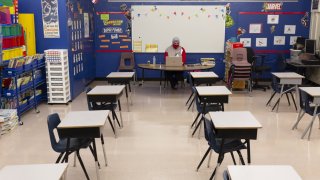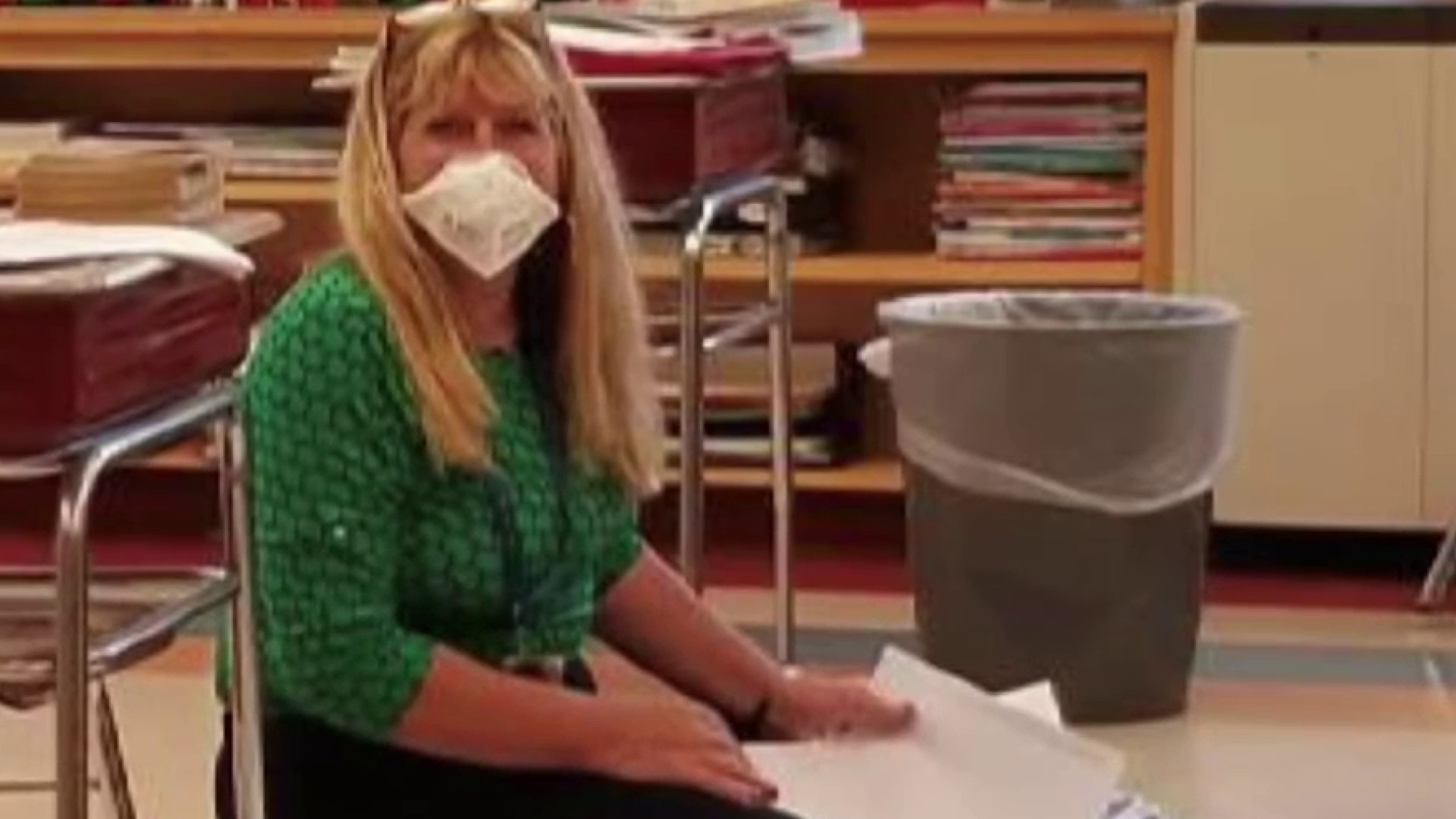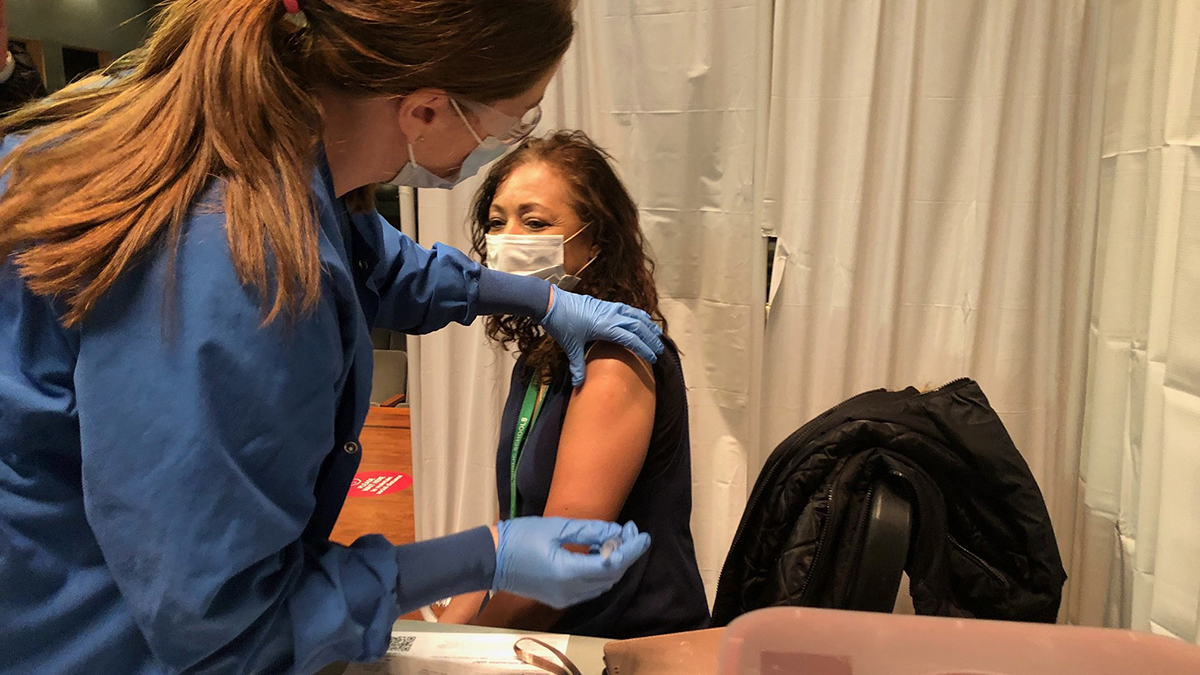
In another sign of the push to return to traditional in-person schooling, the state Board of Education is scheduled to vote Friday on emergency regulations granting the state education commissioner authority to determine when hybrid and remote models will no longer count towards required student learning time hours.
"If adopted, they will result in more students returning to full-time, in-person learning with appropriate school-based mitigation measures in place, as COVID-19 health indicators continue to improve," Education Commissioner Jeff Riley wrote in a memo to members of the Board of Education on Wednesday.
Under the proposed regulations, if Riley were to conclude, after consulting with state health officials and medical experts, that students may safely attend classes in an in-person setting then, "after providing written notice to the Board, I may notify districts that they may no longer use hybrid or remote learning models to meet the minimum school year and structured learning time requirements set forth in the regulations," according to the memo.
More on the coronavirus pandemic
Get Boston local news, weather forecasts, lifestyle and entertainment stories to your inbox. Sign up for NBC Boston’s newsletters.
The amendments include a waiver process to address circumstances in which districts make a case for an incremental approach, and would permit the commissioner to advance a phased-in approach to distinguish between elementary schools, middle schools and high schools.
Under the rules, parents and guardians will have the option for the rest of this school year to select a remote learning model for their children, and learning hours for those students will continue to count for structured learning time.
According to Riley, he plans to pursue a graduated approach if granted the new regulatory powers by the board, with an initial focus on bringing all elementary school students back to in-person learning five days a week in April. Riley plans at Friday's meeting to provide additional details "on my plan to return more students to full in-person instruction, including supports for districts to accomplish this goal," according to the memo.
During the pandemic, state officials have largely deferred to local decision-making on remote, hybrid or in-person learning models. But with the state coming off of its second surge in virus cases and more of the population getting vaccinated, Gov. Charlie Baker is making a hard push to force in-person learning.
A public comment period is expected following Friday's vote and Riley plans to bring the amendments back for final adoption at the board's May meeting. The emergency regulations, if approved, will take effect immediately and be effective for three months, according to Riley, "because of the urgent need."
Many schools in Massachusetts have been providing in-person instruction to students throughout the current academic year. The in-person learning push this week caused President Joe Biden on Tuesday and Baker on Wednesday to accelerate vaccine eligibility for teachers.
As of Feb. 12, nearly 80 percent of Massachusetts school districts were providing at least some in-person instruction to students through an in-person or hybrid model. But many larger urban school districts have been providing fully remote instruction for most or all of the school year, and Riley on Wednesday estimated that 300,000 students are enrolled in districts that are currently fully remote.
Baker announced Wednesday that teachers on March 11 will become eligible to try to get vaccine appointments.
The Board of Education is scheduled to meet Friday at 2 p.m. in Malden, and plans to follow health and safety guidelines, including limiting the number of people in its meeting room. The meeting will be livestreamed.



